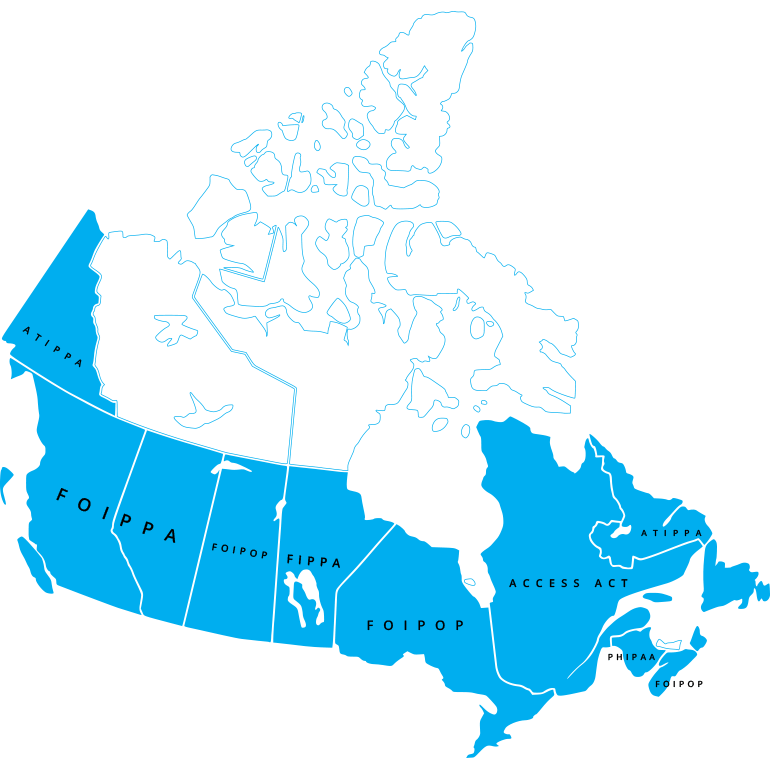Why We’ve Joined Over 200,000 Canadians in Saying No to Bill C-51
by Jason on May 5, 2015 12:03:08 PM

Canadian parliament will be voting on Bill C-51 this week, legislation designed to get tough on terrorism.
We’re all for that.
However, this legislation appears to erode basic civil liberties in the process, by giving government agencies wide sweeping powers to setup dragnet surveillance, and share collected information on law-abiding citizens – with little oversight or accountability.
From a business standpoint, we’re concerned that Bill C-51 will undermine trust in Canada’s technology sector.
We know that many of our customers, including Canadian government agencies, consciously choose Canadian cloud service providers because of the invasive privacy issues prevalent south of the border. The U.S. tech industry has lost billions in revenue because of this, and we don’t want that to happen here.
Furthermore, we believe this legislation provides too much leeway for the Canadian Security and Intelligence Service (CSIS) to take unjustified actions against Canadian cloud service providers through the use of overreaching digital disruption techniques. False attribution of content, planting of malware, and network “takedowns” could become routine – without judicial supervision.
We understand the dangers of terrorism and the government’s need to protect us, however, we also believe that legislation like Bill C-51 should aim to strike a fair balance between these needs and the rights and freedoms we hold dear as Canadians.
To read more and contact your member of parliament, visit https://stopc51.ca/
- February 2025 (2)
- January 2025 (1)
- December 2024 (1)
- November 2024 (2)
- October 2024 (5)
- September 2024 (6)
- August 2024 (3)
- July 2024 (6)
- June 2024 (4)
- May 2024 (4)
- April 2024 (7)
- March 2024 (4)
- February 2024 (5)
- January 2024 (5)
- December 2023 (1)
- November 2023 (3)
- October 2023 (3)
- September 2023 (2)
- August 2023 (5)
- July 2023 (2)
- June 2023 (4)
- May 2023 (2)
- March 2023 (2)
- February 2023 (1)
- January 2023 (3)
- December 2022 (1)
- November 2022 (3)
- October 2022 (2)
- August 2022 (3)
- July 2022 (1)
- June 2022 (1)
- May 2022 (2)
- April 2022 (1)
- March 2022 (2)
- January 2022 (4)
- December 2021 (2)
- October 2021 (3)
- September 2021 (3)
- August 2021 (1)
- July 2021 (5)
- June 2021 (4)
- May 2021 (3)
- April 2021 (4)
- March 2021 (5)
- February 2021 (2)
- January 2021 (5)
- December 2020 (1)
- November 2020 (2)
- September 2020 (1)
- August 2020 (1)
- July 2020 (1)
- May 2020 (1)
- April 2020 (1)
- March 2020 (3)
- February 2020 (1)
- November 2019 (1)
- October 2019 (1)
- August 2019 (1)
- May 2019 (1)
- April 2019 (1)
- February 2019 (1)
- January 2019 (2)
- December 2018 (1)
- October 2018 (2)
- September 2018 (4)
- June 2018 (1)
- May 2018 (1)
- March 2018 (1)
- January 2018 (2)
- December 2017 (2)
- November 2017 (2)
- September 2017 (1)
- August 2017 (2)
- May 2017 (2)
- April 2017 (1)
- January 2017 (2)
- July 2016 (3)
- June 2016 (3)
- February 2016 (1)
- November 2015 (1)
- September 2015 (1)
- August 2015 (4)
- May 2015 (4)
- January 2015 (2)
- October 2014 (1)
- September 2014 (1)
- August 2014 (2)
- July 2014 (5)
- June 2014 (2)
- March 2014 (1)
- December 2013 (1)
- October 2013 (1)
- September 2013 (1)
- July 2013 (4)
- June 2013 (2)
- April 2013 (1)
- February 2013 (1)
- January 2013 (1)
Subscribe by email
You May Also Like
These Related Articles

Canadian Data Privacy Law Part 2: The Public Sector

A secure, Canadian Dropbox alternative
